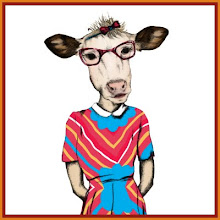A line of clothing, a company that provides DJs. The two sound different enough that sharing a similar name shouldn’t be a problem, like a record label and a computer hardware manufacturer. But for Swaziboy Entertainment and Swazi Boy Africa, it’s not that simple. Much like Apple Records and Apple Inc., the two have found themselves in some overlapping territory. Unlike the Apple brands, however, this is not the story of two long established companies unexpectedly moving into overlapping areas. Swazi Boy Africa is a fairly new company and according to Swaziboy Entertainment, the two-word Swazi Boy is intentionally stomping on its ground.
Swazi Boy Africa is a t-shirt-only clothing line produced by Nkhosi Clothing. (Facebook photos showing the clothing line here.) Swaziboy Entertainment is “a promotional and events management company that specializes in providing entertainment in birthdays, engagements, weddings, corporate functions, Christmas and New Year’s Eve parties.” (More info on their extremely hard to read MySpace page here.)
Swaziland uses the international classification system for trademarks. (Section 16, Trademarks Act of 1981. Note: This is not the most recent TM Act for Swaziland, but is the most recent available online. Information about changes made in the 1994 Act are available here.) Products like clothing (class 25) are in different classes than services like entertainment (class 41), so it seems like there should be no problem.
Things aren’t quite that simple though. Swaziboy Entertainment also has t-shirts and other clothing items with its logo on them. And to complicate things more, the owner of the Swazi Boy Africa t-shirt line is also in the music industry; he’s a hip hop artist. And a hip hop artist that performs at the same venues as hired DJs. (example) This means, it is quite likely that both Swaziboy Entertainment t-shirts and Swazi Boy Africa t-shirts could wind up promoted at the same events.


According to an article in The Times of Swaziland, Swaziboy Entertainment is currently attempting to negotiate with Swazi Boy Africa. Whether the negotiations are to stop production of the Swazi Boy Africa shirts or work out some sort of licensing deal, Afro-Leo does not know. According to The Times, if an agreement is not reached, Swaziboy Entertainment will be taking Swazi Boy Africa to court.
In order to have a cause of action for trademark infringement, the mark needs to be registered. (Section 20 Trademark Act 1981.) Afro-Leo was unable to find out if either of the marks are registered. If they are both registered, the registration serves as prima facie evidence that the mark is valid. (Section 7.)
If the mark of the complaining company is not registered, the only matter of recourse is passing off. Given the great differences in the two marks and the statements by Nkhosi company that it’s t-shirt line in no way is related to Swaziboy Entertainment, passing off may be hard to show. Additionally, Nkhosi is based in and has sold most of its shirts in South Africa, outside Swaziboy Entertainment’s market.
What also may be important, and is unknown to Afro-Leo, is the commonality of the phrase “Swazi boy” in Swaziland and the surrounding areas. Is this a fairly generic term that Swazi male youth use to refer to themselves? If so, Swaziboy Entertainment may have a hard fight ahead of them.
Afro Leo would love to hear readers thoughts on the dispute, especially from those readers familiar with Swazi trademark and passing off law.







